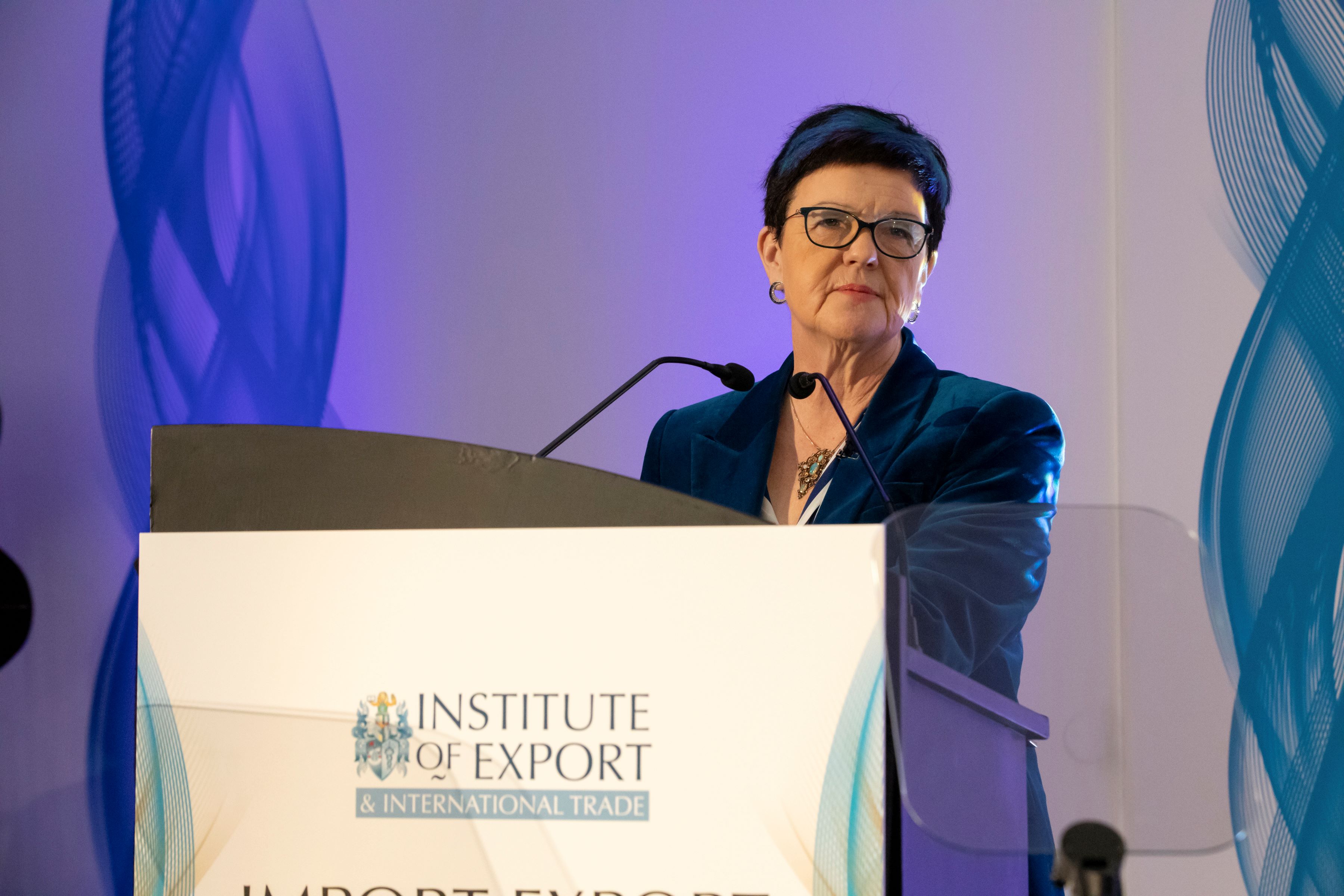
Speaking at today’s (15 November) inaugural Import Export Show, Baroness Neville-Rolfe DBE CMG outlined opportunities to optimise the UK’s border for trade.
Ahead of the implementation of the new Border Target Operating Model (BTOM) in January next year, she said that technology and a risk-based approach to border checks will give deliver a world-class UK border.
‘An opportunity’
The baroness said that Brexit had presented the UK with an opportunity to “scrutinise our entire trading system, not just how we organise trade deals”.
She went on to describe the need for a compromise between a system that is as “minimally burdensome” as possible, while safeguarding UK security and adopting emerging technology to enhance the efficiency of shipping and trade. She said:
“We are seizing this joint opportunity to improve everything about borders: not just what comes through them, but how those goods enter and leave our shores.”
BTOM
She praised BTOM for striking this balance. The new system, which will introduce a new range of sanitary and phytosanitary (SPS) checks on EU food and drink imports, will come into effect on 31 January 2024.
Neville-Rolfe highlighted benefits such as an estimated saving of £500m per year by eradicating additional paperwork for importers alongside introducing a risk-based model to additional checks, preventing the need for further delays.
Risk-based model
The BTOM will separate food and drink products into different risk-levels, assigning a greater number of checks to those that pose a greater risk to biosecurity.
Neville-Rolfe explained that this would create efficiencies by reducing “costly, rigorous controls and checks that were overburdensome relative to their risk”.
Technology
The baroness went on to outline how government has consulted with businesses on technology which could remove cost and time barriers, such as ledger technology recently legalised through the UK’s Electronic Trade Documents Act (ETDA) to GPS tracking.
She added that the single trade window could offer further improvements, providing a centralised gateway through which businesses could input data required and apply for any necessary licences to trade.
Timeline
Following the announcement of a three-month delay to BTOM’s implementation, Neville-Rolfe sought to emphasise that the government is “pushing ahead” and urged businesses that they “need to start preparing”.
Considering the decision to push back the deadline, she emphasised that additional time isn’t just beneficial to UK businesses, as EU suppliers have also “welcomed the delay” in order to get up to speed with new border requirements.



